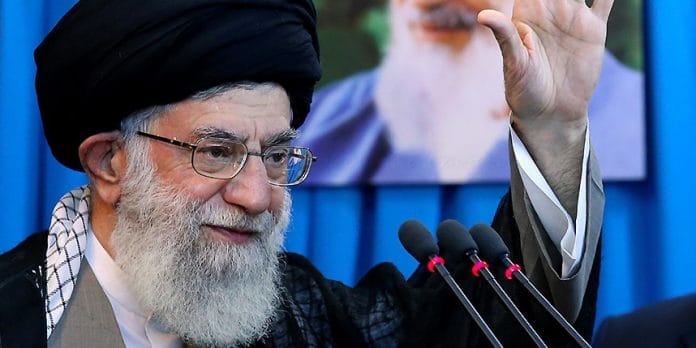London: Iranian hard-liners looked set to take control of parliament on Friday in an election dominated by the country’s turbulent standoff with the U.S.
Conservative factions fiercely loyal to Supreme Leader Ayatollah Ali Khamenei and generally opposed to engaging with the West are widely expected to prevail after hundreds of more moderate and reformist politicians were disqualified from standing. The military exchanges and highly charged rhetoric that have characterized the confrontation with Washington, meanwhile, have energized Khamenei’s base.
If victorious once ballots are counted, arch-conservatives will control most branches of the state for the first time since the end of Mahmoud Ahmadinejad’s presidency in 2013.
Incumbent Hassan Rouhani, who delivered on his promise to end Iran’s long-running nuclear standoff with global powers but was unable to build a new era of prosperity faced with President Donald Trump’s economic offensive, will be largely sidelined.
Some 7,200 candidates will be vying for 290 seats and around 58 million people are eligible to vote in the country of 84 million. About 75 current lawmakers have been barred from running again by the powerful Guardian Council, tipping the field heavily in favor of conservatives wedded to the theocratic ideals of Iran’s 1979 Islamic revolution.
Friday’s election also has significant potential consequences for the Iranian economy and the wider Middle East — including any hopes Iran will renegotiate its landmark 2015 nuclear settlement, hollowed out by the Trump administration’s withdrawal.
“The crux of this vote is whether it will indicate the outcome for the next presidential elections, which will be more significant,” said Ellie Geranmayeh, senior policy fellow at the European Council on Foreign Relations.
“If the Rouhani opposition does take over parliament, they will see this as ammunition that galvanizes them and they won’t want him to have any foreign policy success in his last year,” she said.
Some prominent conservative politicians are using the election to stage a comeback and may use it as a springboard to compete in the 2021 presidential poll, when Rouhani will be ineligible to stand for a third term.
They include the former mayor of Tehran, Mohammad-Bagher Ghalibaf, a former general with the powerful Islamic Revolutionary Guard Corps. Firebrand cleric Hamid Rasaei, who campaigned against the nuclear deal as it was being negotiated, is also hoping to re-enter parliament.
Also read: Iraq has lots of protesters, and a government on autopilot
Threats to Ministers
Amid concerns of a low turnout, the commander of Iran’s powerful Islamic Revolutionary Guard Corps urged Iranians to show defiance to the U.S., saying “every vote by the people is a slap in the face of an enemy,” the semi-official Tasnim news reported.
If the new chamber does decisively swing in favor of conservatives, Rouhani may struggle to ratify any key legislation during his final year in office, including efforts to bring Iran’s banks within international anti-terrorism financing standards. Ongoing attempts to impeach some key ministers, including Oil Minister Bijan Namdar Zanganeh, are also likely to escalate.
Rouhani’s credibility was already battered by the failure of the nuclear deal to deliver the economic relief he’d promised after a decade of international sanctions.
From the get-go, foreign businesses were afraid to sign deals, fearful of running afoul of remaining U.S. sanctions. Any lingering hopes evaporated after the U.S. quit the accord in 2018 and began imposing sanctions that have clobbered the Iranian economy. The International Monetary Fund estimates it shrank by 9.5% last year.
Conservatives want Iran to abandon Rouhani’s push to open up to Western investment and trade, and focus instead on increasing self-reliance. While oil exports, down 80%, show no sign of recovering, construction, steel production and exports for cash to immediate neighbors are doing well.
A crisis budget released in December boosts handouts for the poor and defense spending, though it’s based on ambitious growth and oil export assumptions.- Bloomberg
Also read: Iran’s bid to integrate with global economy coming to an end







More and more Muslim countries have sharia law with hardliners at the power. And at the same time more and more non=Muslim countries will have rightist parties in power.